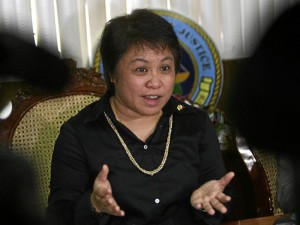Agus 3 Hydropower Corp., the proponent seeking to build a $570-million, 240-megawatt hydropower plant in Mindanao, has warned that the Department of Energy’s continued inaction on its proposal could make the agency’s officials answerable to criminal, civil and administrative liabilities.
The liabilities are in view of the “damages and injuries being suffered by the people of Mindanao” and of Agus 3 HC due to the delay in the construction of a power facility that could stave off a power crisis in 2015.
In a letter to DOE officials dated Oct. 15, Agus 3 HC president Saidamen B. Pangarungan pointed out that current state policies mandated the energy department to “accelerate the development of renewable energy resources like the Agus 3 hydropower project and not to delay it for almost two years now.”
“With due respect, your continued inaction for almost two years since we filed our application with your department has greatly prejudiced the people of Mindanao, including our company, of affordable clean energy, in the midst of the Mindanao power crisis that has been gripping us. It exacerbates the already precarious power situation in Mindanao,” Pangarungan explained.
“Your inaction is in violation of the Anti-Graft and Corrupt Practices Act (R.A. 3019), the Code of Conduct of Public Officers and Employees (R.A. 6713), Renewable Energy Law (R.A.9513), and the Electric Power Industry Reform Act or EPIRA (R.A.9136),” he added.
In effect, he said the DOE’s inaction was indirectly benefiting proponents of the more expensive fuel and coal-fired power facilities, whose generation costs were believed to be more expensive than hydropower.
Pangarungan also pointed out that the approval of Agus 3 HC’s renewable energy service contract application was a ministerial duty of the DOE secretary, not a discretionary one. There was nothing in the Epira or the Renewable Energy Act that authorized the DOE secretary to withhold through a service contract the fiscal incentive package to a renewable energy project that complied with the standard government approvals and permits, Pangarungan stressed.
He added that the company has fully complied with all government permits and have even firmed up foreign investments and project financing—all that was missing was the renewable energy service contract from the DOE.


